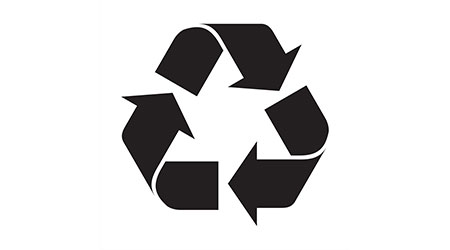As healthcare workers battle COVID-19 on the front lines, hospital resources are stretched thinner than ever before. Reducing expenses is therefore critically important to any facility's operational resilience and its ability to provide exemplary patient care. Prior to the crisis, many healthcare facilities were already examining their waste management practices as a potential source of cost savings. Now, it is more crucial than ever to identify those hidden opportunities for savings in order to redirect those resources to the ongoing fight against this pandemic.
With waste disposal becoming even more vital during the COVID-19 crisis due to the rise in contaminated waste, now is the time to reevaluate both your waste and recycling practices to help alleviate unnecessary cost burdens and streamline your processes. With the right approach, hospitals can safely and effectively dispose of medical waste while saving valuable dollars.
Hospital waste management and cost savings go hand in hand.
Healthcare facilities inevitably produce incredibly high volumes of waste, simply due to the nature of their operations. In fact,hospitals generate more than 29 pounds of waste per bed, per day. That means a hospital with one hundred beds produces over 20,000 pounds of waste a week. Of that sum, approximately:
- 54 percent is paper and cardboard
- 18 percent are organics
- 15 percent are plastics
- 3 percent is metal
- 2 percent is glass
Managing these large volumes of waste is an expensive process, meaning the right recycling and sustainability measures have the potential to save hospitals significantly in operational expenses. In the healthcare context, sending a large amount of recycling out the door costs half as much as getting rid of the same amount of solid waste. On top of that, hospitals’ medical waste can cost up to10 times as much as solid waste, making management programs even more critical to their budget.
Strategically managing this waste by establishing appropriate recycling programs can directly save your hospital money. And these savings are more crucial than ever, with theAHA estimating losses of $202.6 billion for America’s hospitals and health systems. In addition to lowering expenses, waste management programs help facilities extend their environmental stewardship by diverting valuable recyclable materials from landfills and incinerators. This ensures safer waste practices and working environments for employees and patients, and helps reduce the health risks associated with pollution.
Fighting COVID-19 though creative recycling practices
In light of the COVID-19 pandemic, hospitals are producing more medical waste than ever as they work to quickly admit and treat patients. This meteoric rise in patients naturally leads to more prepared meals and associated medical materials, as well as more waste associated with treatment and mounds of paperwork. And as some states lessen restrictions, elective surgeries are resuming, further contributing to the increase in waste. Improper disposal and waste removal can quickly drain resources while recycling all these extra materials properly can actually lower costs for facilities. Thankfully, with the right third-party partner that understands sustainable waste management, disposing and recycling of medical materials can be achieved at a higher rate in tandem with lower recurring expenses.
While hospitals are always vigilant of waste contamination, during the COVID-19 crisis these procedures are more important than ever. Federal guidelines haven’t changed too much for medical waste:OSHA advises healthcare employees and waste workers to handle medical waste in accordance with routine procedures. However, hospitals and clinics are going above and beyond to take extra precautions that include double layered bags, color-coded dustbins, and mandatory labelling. Additionally, medical waste management service providers must be expertly trained and well-equipped with PPE to manage treatment, collection, and disposal of dangerous waste.
When it comes to the fight against COVID-19, the impact of proper recycling goes far beyond cost savings. Recycling practices grinding to a halt have already led to severe shortages of items that are primarily made from recycled materials and that play an important role in the pandemic response: Including a couple examples like the specialty shipping boxes made to transport important medical supplies or themasks made from plastic bottles in Tanzania. In the modern world, creative solutions to our problems come from recycling; and during the COVID-19 crisis, we need as much recycling contribution and creativity as we can get.
Recycling programs create resilience during COVID-19 and beyond
Prior to the global pandemic, hospitals and healthcare facilities were already identifying the cost-saving opportunities that came with implementing recycling programs. In this time of crisis, it doesn’t lessen the significance of these services—In fact, it maximizes their importance. Healthcare resources are stretched thin in the fight against COVID-19, and those savings can have a crucial financial and concrete impact on a hospital’s bottom line. Safe, strategic, and efficient recycling programs can help hospitals maintain resilience through the pandemic and emerge on the other side stronger than before.
Graham Rihn is the CEO of RoadRunner Recycling.

 UF Health Hospitals Rely on Green Globes to Realize Their Full Potential
UF Health Hospitals Rely on Green Globes to Realize Their Full Potential How Healthcare Facilities Can Be Truly Disaster-Resilient
How Healthcare Facilities Can Be Truly Disaster-Resilient TriasMD Breaks Ground on DISC Surgery Center for San Fernando Valley
TriasMD Breaks Ground on DISC Surgery Center for San Fernando Valley Bigfork Valley Hospital Falls Victim to Data Breach
Bigfork Valley Hospital Falls Victim to Data Breach AI-Driven Facilities: Strategic Planning and Cost Management
AI-Driven Facilities: Strategic Planning and Cost Management